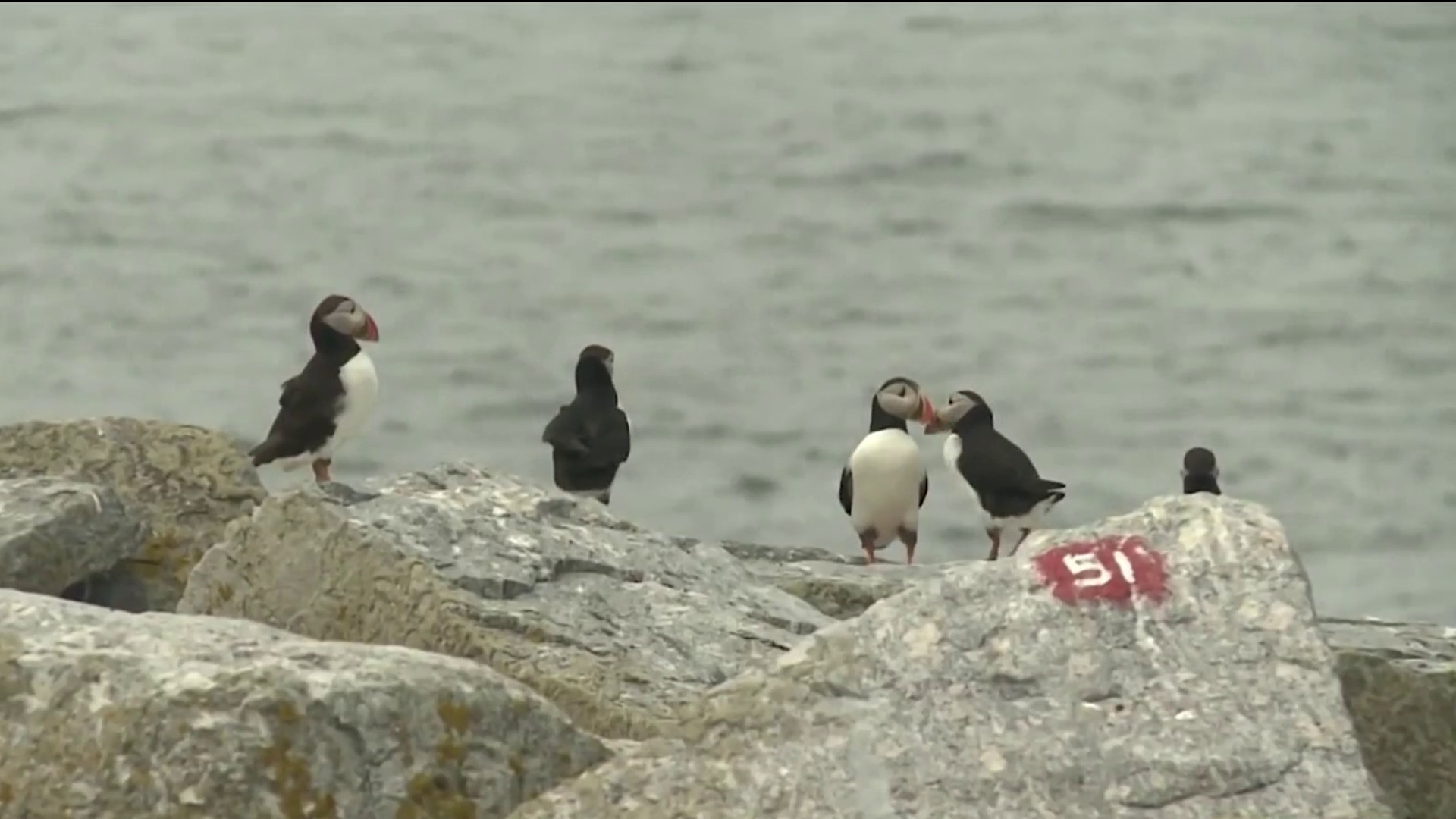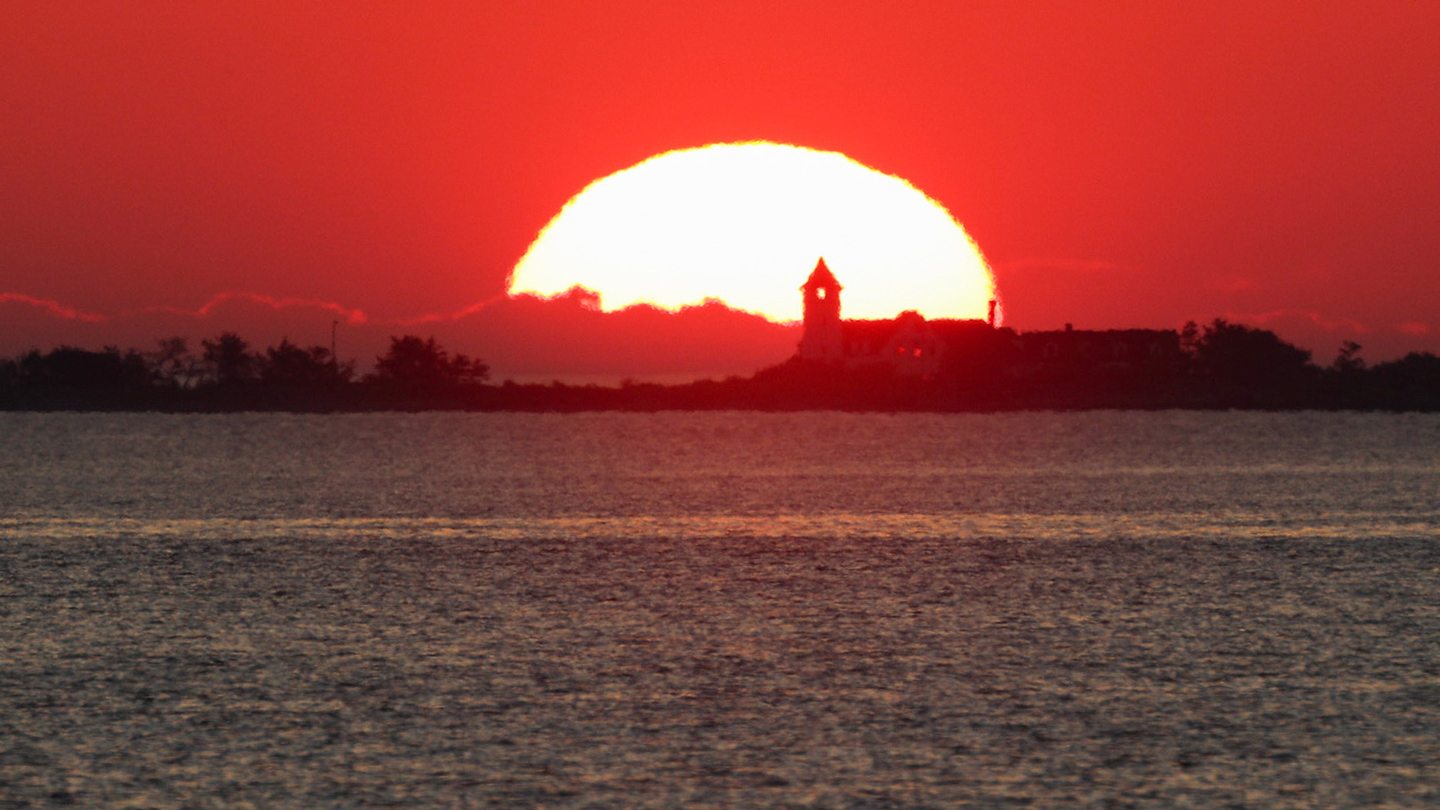Michelle Wu picked up a lot of support while campaigning for mayor, promoting her signature program: A Boston Green New Deal.
She pledged to make climate change and associated issues around equity and inclusion her immediate and top priority
So six months into her tenure, how is Wu doing? Mariama White Hammond, who has been charged with leading the initiative, has big plans for South Boston’s Moakley Park, 60 acres of beloved oceanfront green space.
"We’ll be able to move the South Boston Farmer’s market here too to here," she said.
Get Boston local news, weather forecasts, lifestyle and entertainment stories to your inbox. Sign up for NBC Boston’s newsletters.
The park is a prime target for coastal flooding. White Hammond points out an area of the park that will be turned into an amphitheater.
"You can have an open mic or a performance there. It’ll also catch water," she explained.
With the help of a million-dollar federal earmark, the park now offers raised beds for area residents to grow their own food and a system is in the works to divert water away from the adjacent housing projects and Columbia Road.
"It will be pretty sophisticated in terms of its water management," White Hammond said.
White Hammond is Boston’s chief of environment, energy and open space - in charge of implementing the mayor's ambitious plans.
"The climate crisis is very real. It’s here and it’s going to grow. We also have an economic crisis...the Green New Deal says we shouldn’t look at those two things separately," she said.
Wu is pushing for bold, structural change to create a green economy and sustainable communities including on transportation, workers’ rights and housing.
What does that have to do with climate change?
"Everything. If people don’t have a safe place to stay and the ability to keep a roof over their head how are they going to be ready for the impacts of climate change?" White Hammond said.
So, six months into the new administration, what kind of progress has been made?
Mariama White Hammond has a long list at the ready.
"Just earlier this week we were announcing a solar program in East Boston...we’re looking at electrifying our school buses...we are replicating a green jobs program called Power Corps...we’re working on wetlands policy."
Another ambitious goal – making Boston carbon neutral by 2050.
"If we’re going to get there, we’ve got to start taking the action steps now," she said.
Critics say Wu has taken on too much, too soon with her Green New Deal, but White Hammond said there is not a moment of time to waste adding, “we have a real opportunity. We have got to make major investments to avert this crisis.”
Of course, the best assessment of Wu’s progress comes from outside the administration - from climate change activists and those who wonder how these projects, totaling hundreds of millions of dollars, are going to be paid for.
"I think she is actually off to a great start on the Green New Deal," Bob Tumposky of 350 Mass said.
While tackling the climate crisis is the overriding goal, her proposals are equally focused on doing it with equity and inclusion.
"She’s involving the people who are most affected and they’re at the table," Max Hunter from Mothers Out Front said.
Climate activists were encouraged when Wu signed her very first bill requiring the city to divest from fossil fuel and tobacco.
"That, for me, set the tone that she was ready to get to work," Cabell Eames of a Better Future Project said.
But as the agenda has been rolled out, there is also concern.
"In regard to the Green New Deal, I was a little disappointed when it came to the budget," Nick Oviedo-Torres of Mass Renews Alliance said.
Oviedo-Torres was disappointed because much of the funding is coming from $560 million of one-time federal COVID relief, or ARPA funds, which as one expert explained, can be risky.
Sullivan is research director at the Pioneer Institute and former state inspector general.
“When that money runs out, then, what are you left with?” he asked.
Sullivan said one-time infusions of federal money are typically spent on one-time investments like renovating a school building, re-building a bridge or computer upgrades.
What is Wu’s plan to keep the funds coming when the federal money dries up?
Wu said her administration is working with state and federal partners and is confident that when state and city leaders see the life changing benefits of Green New Deal policies - that the support and funding will follow.
"Being able to measure and document just what happens in our community and what the cost-benefit is then allows us to make the case and have a targeted budget for what we would need moving forward as well," Wu said.
Sullivan pushes back, but also believes Wu is on to something.
"With these aspirational pilot programs, when the money runs out, it could create disappointment. But I think that’s she’s angling here strategically. This is sophisticated. This is advanced thinking," he said.
Critics said Wu is taking on too much, too soon. But climate experts say bold action, including some risks are necessary as the window for reversing or even just slowing the damage continues to close.



